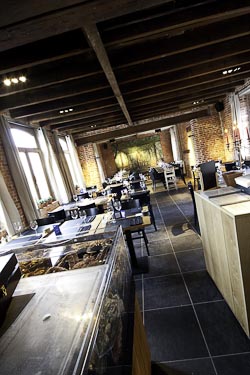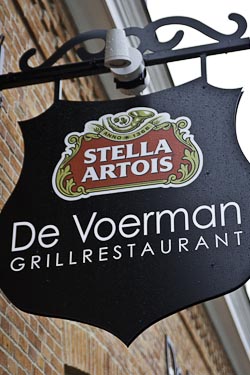History
Inn is an old German word, meaning 'military camp'. Her (host or master) stands for the mountains and mountain army. The literal meaning would thus have been âto a place where troops came to stay. In Germanic cities, the Inns grew progressively to give overnight accommodation for travelers who also could eat and drink. In this view, the Inn regarded as one of the forerunners of the hotel.
An Inn became a larger Inn where horses could rest. Carters and coachmen were able to refresh, drink and sleep. Those Inns were found particularly near entrances to towns and villages, main streets and squares.
The Inn 'In de Voerman' has a long history, it was (and still is) just outside the city walls on the Rijselsepoort, originally Rue du Midi, now Rijselseweg. The old stables have been transformed into the dining room.
In 1910 'In de Voerman' got in the press for vandalisme with the inn as target. The tavern, widow of Henri Dhooghe as innkeeper, once stood outside the Rijselsepoort,. On Tuesday 28 December 1909 a window of her café was shattered by a fired bullet. A few years before her husband was murdered before his inn by a certain Monnet. [Weekly "Le Progrès", nr 1, 2/1/1910]
In the First World War, along with all other buildings in Ypres, it suffered heavy damage from the many bombings.
In the twenties was 'In de Voerman' kept open by Jules and Cécile Godderis-Morel. This appears in an announcement over the public sale of 20 acres of mowing land in the inundation Meerssen. [Het Ypersche, 8.6.1929]
Vier eeuwen Ieperse herbergen", Staf Verheye, Ieper, 1999


